Blockchain is replicating this fragmentation into virtual space, like a silent dark river, traversing between the Iron Curtain and disconnection, carving out escape tunnels for those oppressed.
Written by: Daii
The shock that "The Stage" brought me is no less than that of "To Live." It can even be said that "The Stage" is a condensed version of "To Live"—in a tiny theater, it throws both "survival" and "impossibility of survival" at the audience, with blades facing each other, mercilessly.
In "To Live," the Fugui family struggles painfully under the crushing weight of the times, their fate like fallen leaves, manipulated at will by an invisible hand; while in "The Stage," that hand is no longer hidden but holds a cold golden gun, suspending "life" and "death," "performing" and "not performing," above the trigger, forcing people to answer.
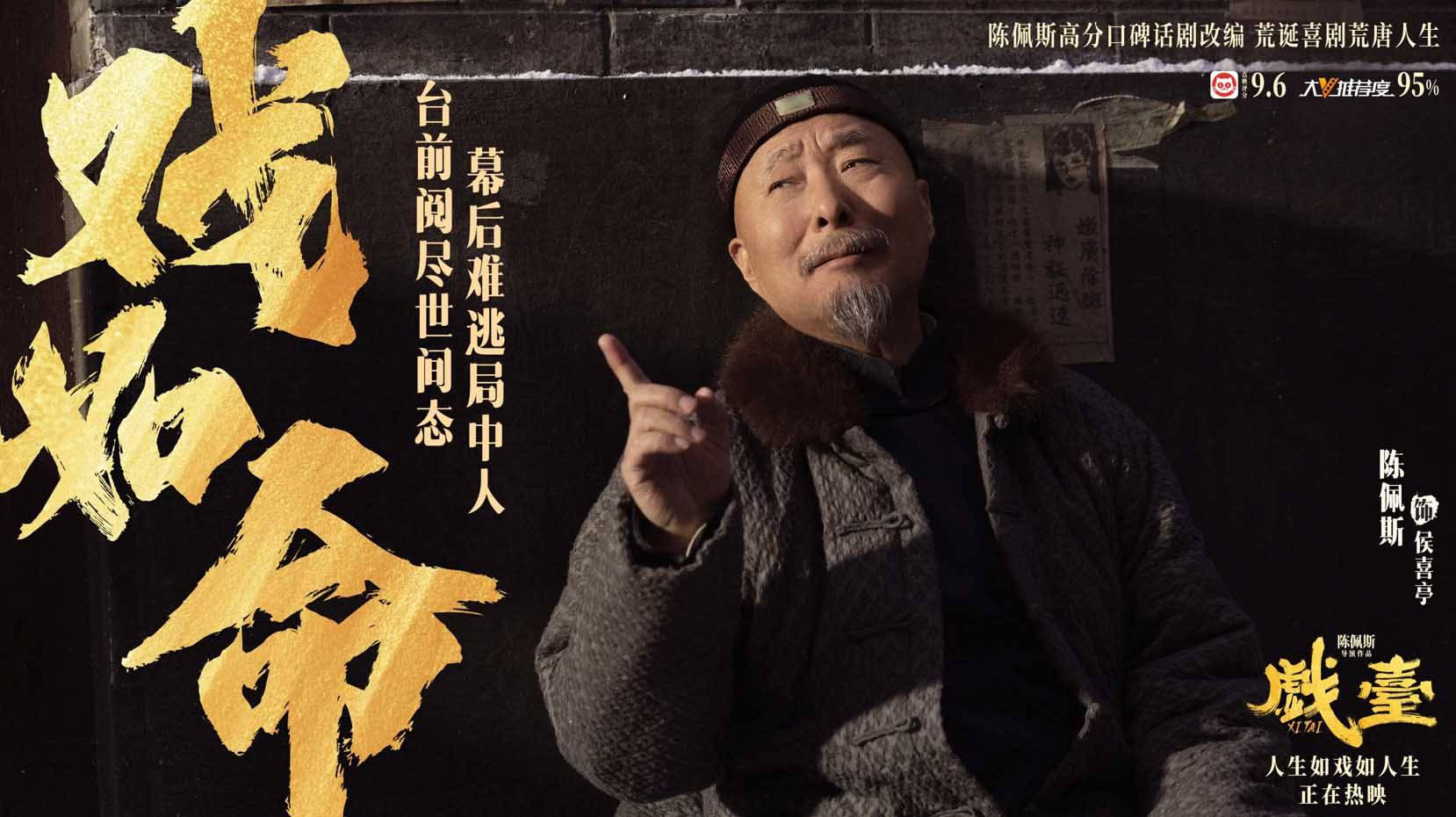
That hand belongs to the newly arrived Hong Dashuai. He demands that the classic play "Farewell My Concubine" be changed. The theater troupe is suddenly caught in a dilemma: if they don't change it, the gun is already pointed at their heads; if they do change it, how will they face their ancestors and their conscience?
Just as everyone is pushed to the brink, cannon fire sounds, Green Dashuai enters the city, and Hong Dashuai falls—what a thrilling climax.
However, when you watch the entire play to the end, you will understand: Green Dashuai is not a "savior." Although he does not change the play, he is even more ruthless. He forces the male dan (female impersonator) of the troupe to submit to his desires. In the end, the male dan jumps into the river to commit suicide, completing a silent struggle against a performance that cannot take a bow.
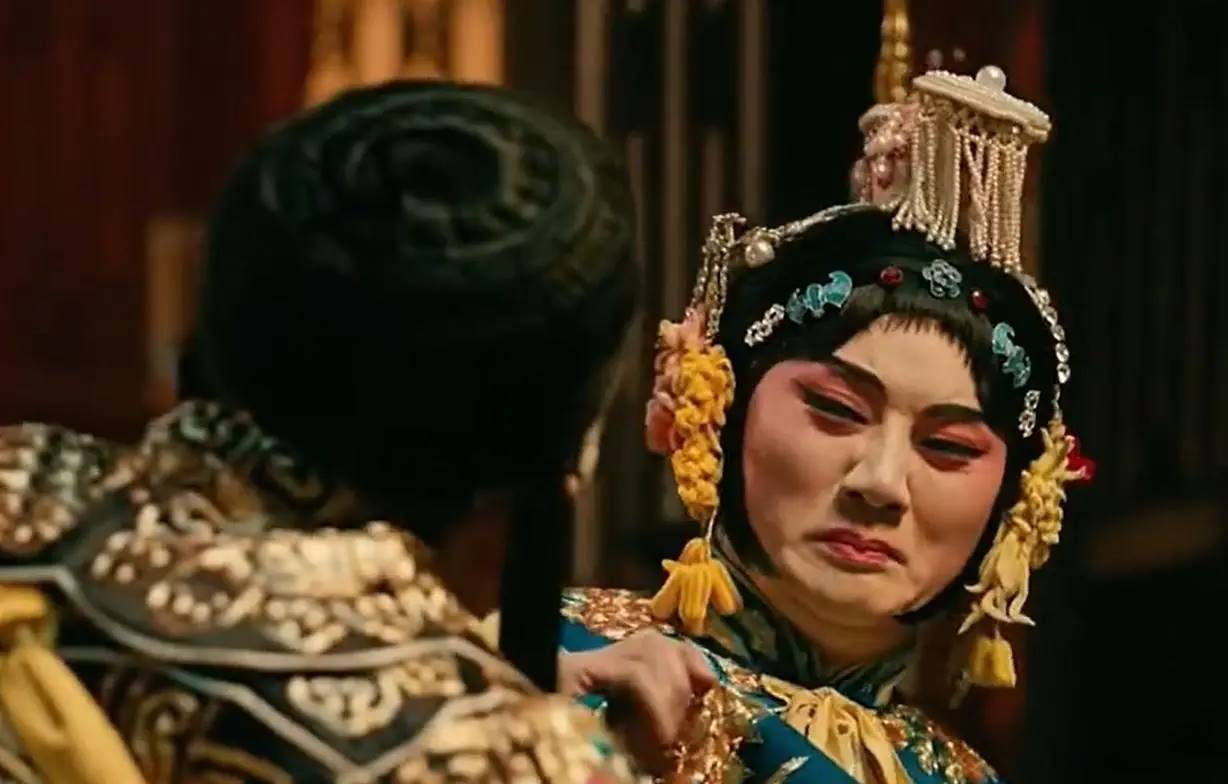
That sound of water is like a cold mirror, reflecting the same outcome for both "changing the play" and "not changing the play": in the face of absolute violence, artists are merely targets, and even survival is a luxury.
This is the naked jungle law:
The strong use guns as teeth and cannons as claws, ready to tear apart any fate they find displeasing; while the weak can only choose between the gunpoint and their conscience—doomed to lose on both sides.
When power can be easily replaced yet remains concentrated in one corner, no matter how splendid the stage or how long the opera, it is merely a backdrop for the play of beasts. The story of Hong Dashuai and Green Dashuai in "The Stage" seems absurd, yet it is a true script that has been repeatedly played out in human history.
I write this article not to tell a story, but to question one issue:
Why has the "jungle law" still not been settled, but instead repeatedly dressed in the guise of "reality" and "rationality" in public discussions, even becoming a standard for some people's judgments of right and wrong?
You will gain three things from this article:
A perspective: to see how that gun is held and how people are trained to accept it;
A historical map: to understand how humanity gradually breaks the jungle loop through "fragmentation of power," "constraints of the rule of law," and "dissemination of technology";
A practical path: how ordinary people today can use tools like blockchain to carve out a dark river of escape for themselves and others.
Now, let us first analyze this oldest and most stubborn logic in human history—the jungle law.
1. Weak eat strong: The psychological code behind the jungle law
What truly drives the operation of the jungle law is never the guns themselves, but the flame in people's hearts that both desires safety and craves domination.
If this flame lacks external constraints, it can spread like wild grass in a drought, ignited by a single spark. History and psychology have long revealed the skeleton of this law.
1.1 First, there is the "sweetness of obedience."
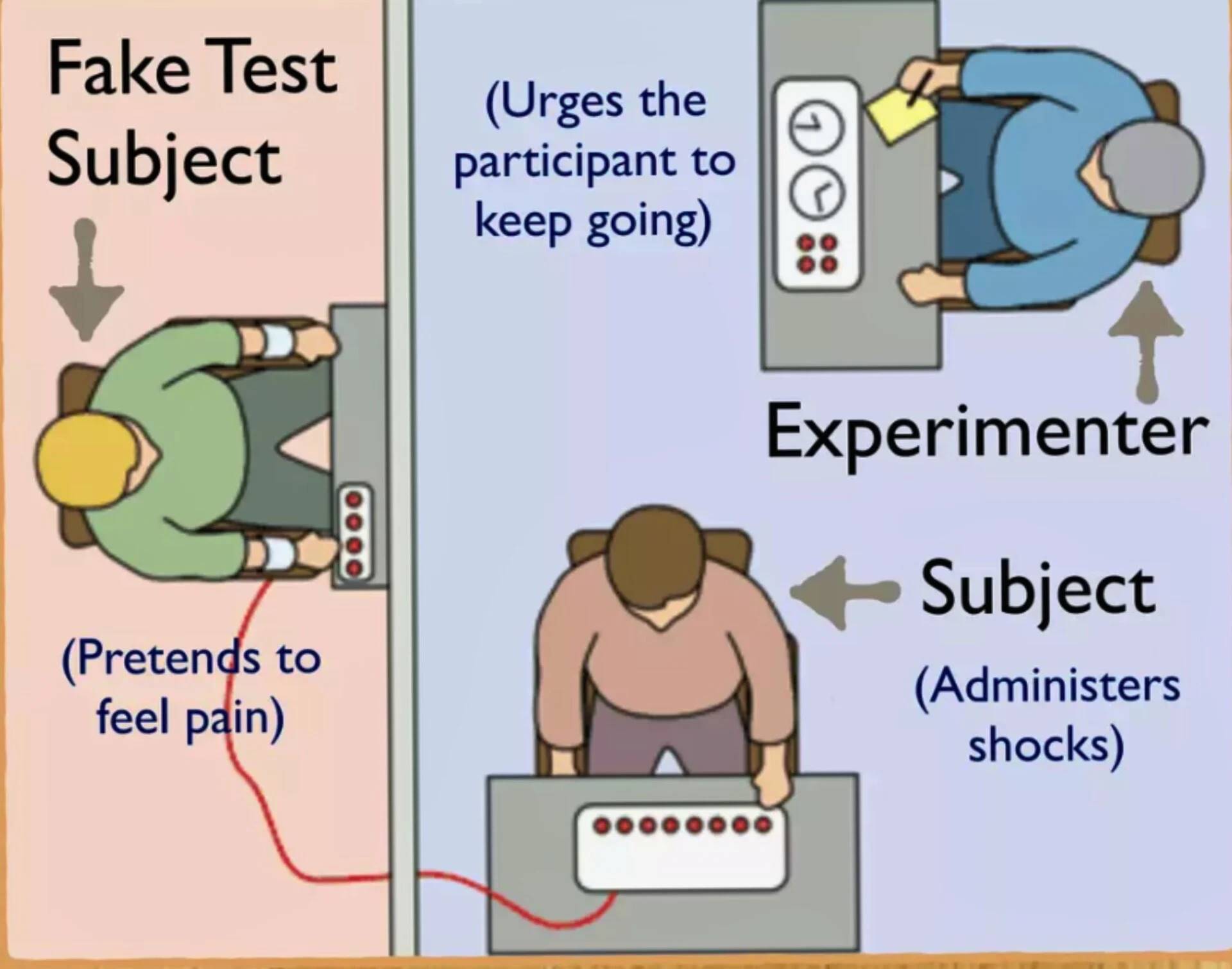
In 1963, Yale psychologist Stanley Milgram conducted a famous experiment. He had ordinary people act as "teachers," administering electric shocks to "students" under authoritative orders. The results were shocking: 65% of participants, even knowing the other person was screaming in pain, still turned the voltage to the maximum (Simply Psychology). Milgram concluded: people are not inherently cruel, but in the face of authority, they subconsciously "outsource responsibility"—a simple "I was just following orders" is enough to put their conscience to sleep.
1.2 Next, there is the "intoxication of position."
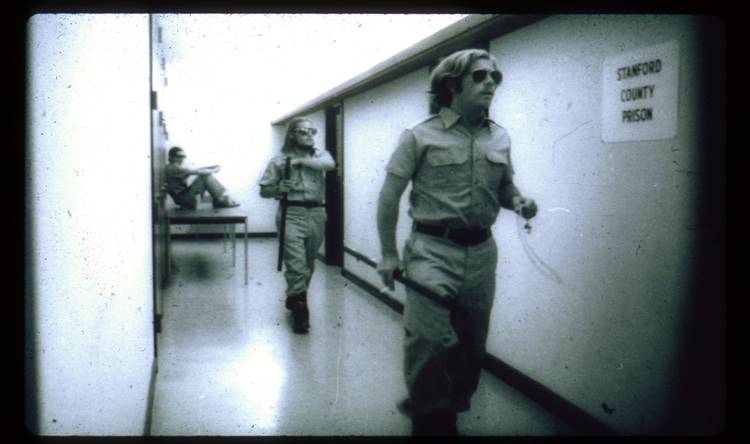
In 1971, Stanford psychologist Philip Zimbardo built a "mock prison" in a basement. He randomly assigned a group of students as "guards" and "prisoners," and within just six days, those originally gentle youths began to humiliate and torture their peers, forcing the experiment to be halted. Zimbardo said: "Change a uniform, put on sunglasses, and you and I could become the kind of people we hate." (Wikipedia)
Further down, there is "the unlimited corrosion of power."
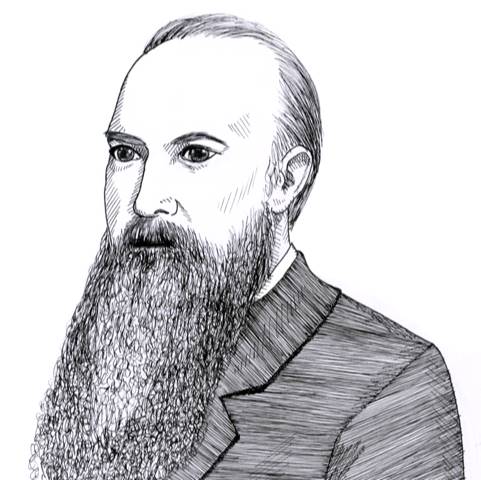
In 1887, British historian Lord Acton wrote to Bishop Creighton, penning the famous quote that has been repeatedly cited by countless political scholars: "Power tends to corrupt, and absolute power corrupts absolutely." (Power tends to corrupt and absolute power corrupts absolutely) (oll.libertyfund.org). This saying has endured for a century because countless cases have verified its cruelty:
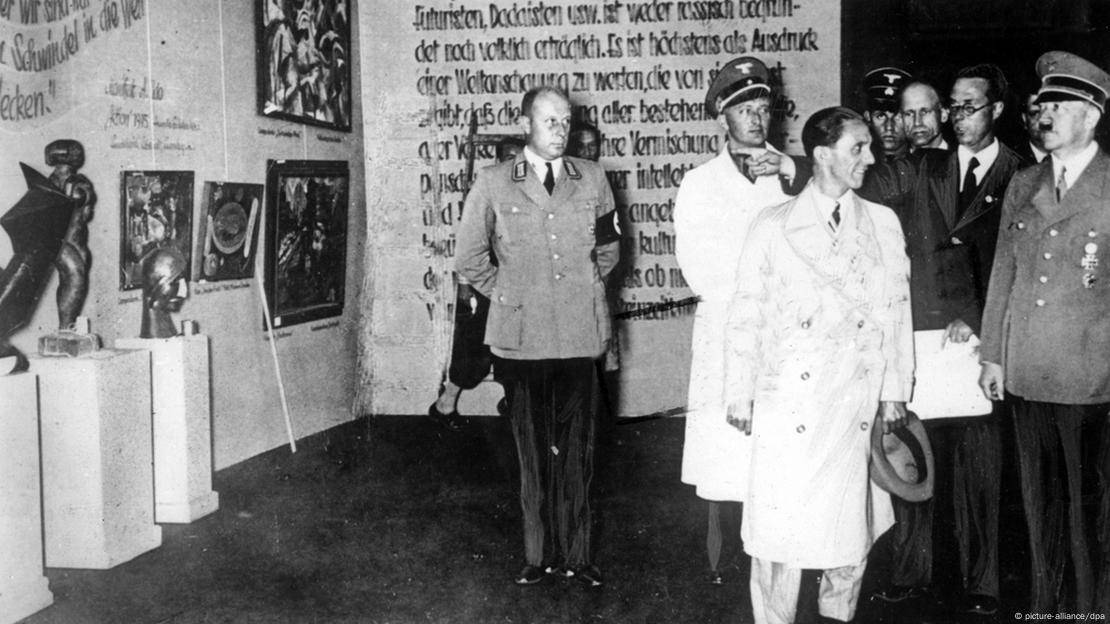
From 1937 to 1945, Nazi Germany burned over 16,000 modern art pieces under the guise of "degenerate art," including original works by Picasso, Kandinsky, and others. This action erased an entire generation of European modern art achievements.
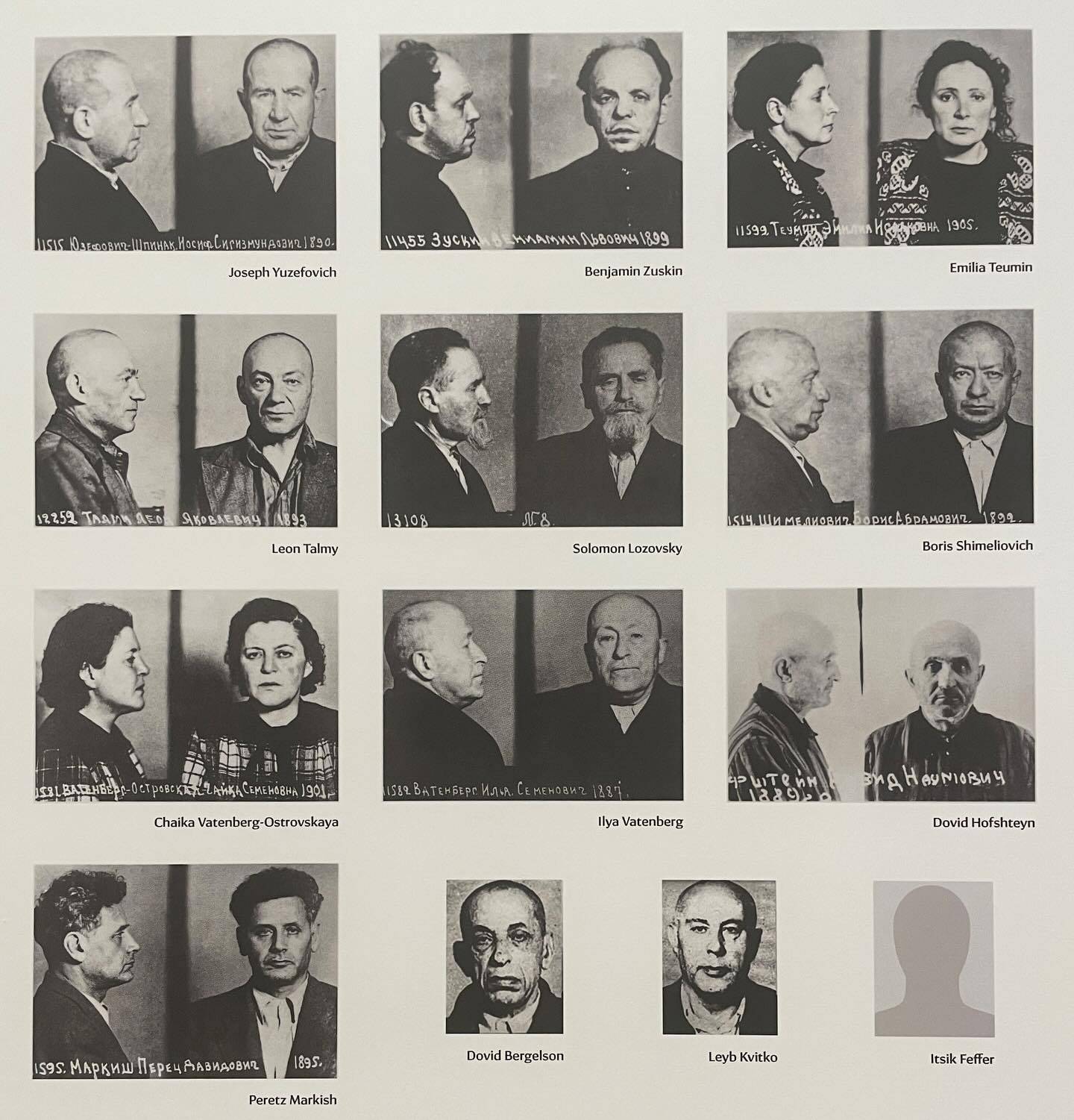
On August 12, 1952, the Soviet regime secretly executed 13 Jewish writers overnight, an event known as "The Night of the Murdered Poets." In the face of totalitarianism, they had not even the weight of a single piece of paper.
Perpetrators are not necessarily demons; they gradually slide into the abyss when placed in an environment where "doing evil incurs no cost."
1.4 Finally, there is "the contagion of fear."
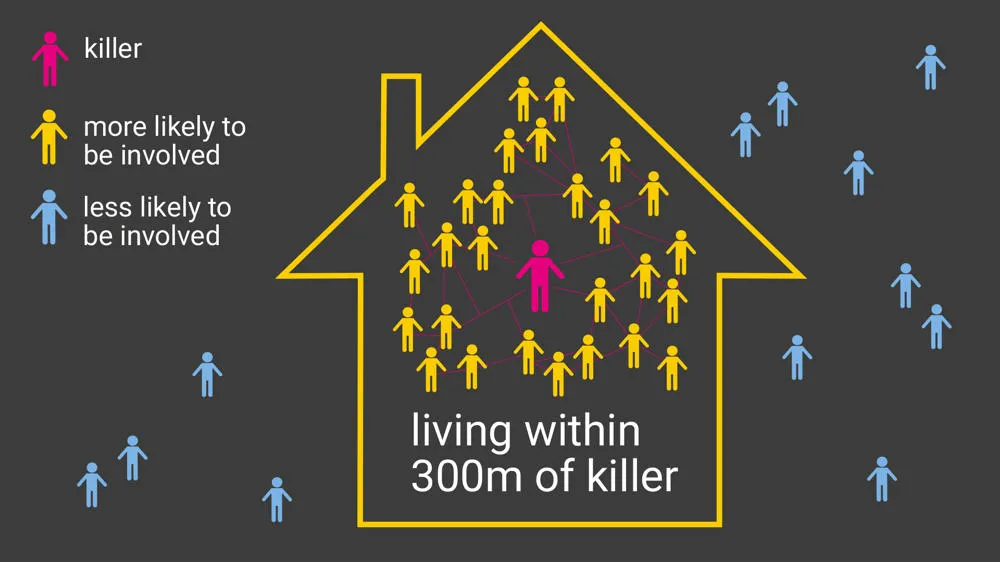
During the Rwandan genocide in 1994, the RTLM radio station continuously broadcast incitement, leading the entire nation to turn on each other in just 100 days, resulting in approximately 800,000 deaths. Research found that people living within 300 meters of the first murderer had a significantly higher likelihood of participating in violence. Fear and conformity spread like a virus, rapidly disseminating through social networks along geographical paths (lse.ac.uk).
By piecing together these experiments and historical puzzles, we see a profound picture of human nature:
Obedience allows individuals to shed responsibility—"I was just following orders";
Position intoxicates individuals with power—"I am the executor of the rules";
Unconstrained power makes the cost always zero—"I won't be held accountable";
Fear and conformity spread evil acts into collective behavior—"If I don't act, I might be next."
When these four factors align, the jungle law completes its loop: the cost of violence is zero, and the rewards for wrongdoing soar. Hong Dashuai and Green Dashuai are merely reflections of the thousands of gun-wielding hands throughout history; the male dan's figure is the repeatedly projected victim under the sweeping power.
To crack this formula, we must install safety valves on any link of "obedience—position—consequences—fear": limit obedience, supervise positions, ensure consequences are real, and prevent fear from monopolizing information.
You may have already thought of it: the solution lies in the two familiar words—"democracy" and "rule of law."
In the context of reality, we might as well return to the 24-character core socialist values: "prosperity, democracy, civilization, harmony, freedom, equality, justice, rule of law, patriotism, dedication, integrity, and friendliness." These words are not mere rhetoric but a precise response to history and human nature.
We must understand: democracy and the rule of law are not fruits that grow naturally, nor are they "automatic upgrades" in places of power. Their seeds sprout in the soil of reality where "power is shattered" time and again.
2. Fragmentation of Power: The Soil of Opportunity for Democracy and Rule of Law
To break the "obedience—position—consequences—fear" jungle loop, the first step is to dismantle the node that always hangs in the center. As long as violence and information can be monopolized, civilization cannot take root.
Throughout history, every sustainable process of democracy and rule of law has almost always sprouted at the moment when power was "forced to disperse"—just as a river forks, allowing the water flow to no longer surge into disaster.
Ancient Greece: The Granular Revolution from City-States to Citizens
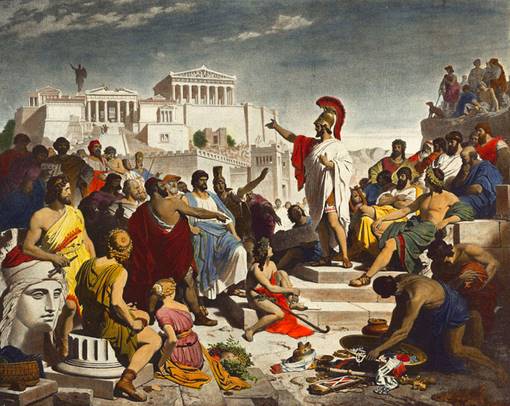
In the 6th century BC, Athens deliberately compressed the scale of the city to "walkable," slicing political power into extremely small units: six thousand jurors were appointed by lottery, and five hundred citizens took turns in governance. By the 4th century BC, about half of the Greek city-states practiced some form of democracy (Wikipedia). In this highly decentralized structure, no individual or family could completely monopolize governance, and the law was first placed on the public debate stage, becoming everyone's business.
England: Nobles Force the Crown, Royal Power on Credit
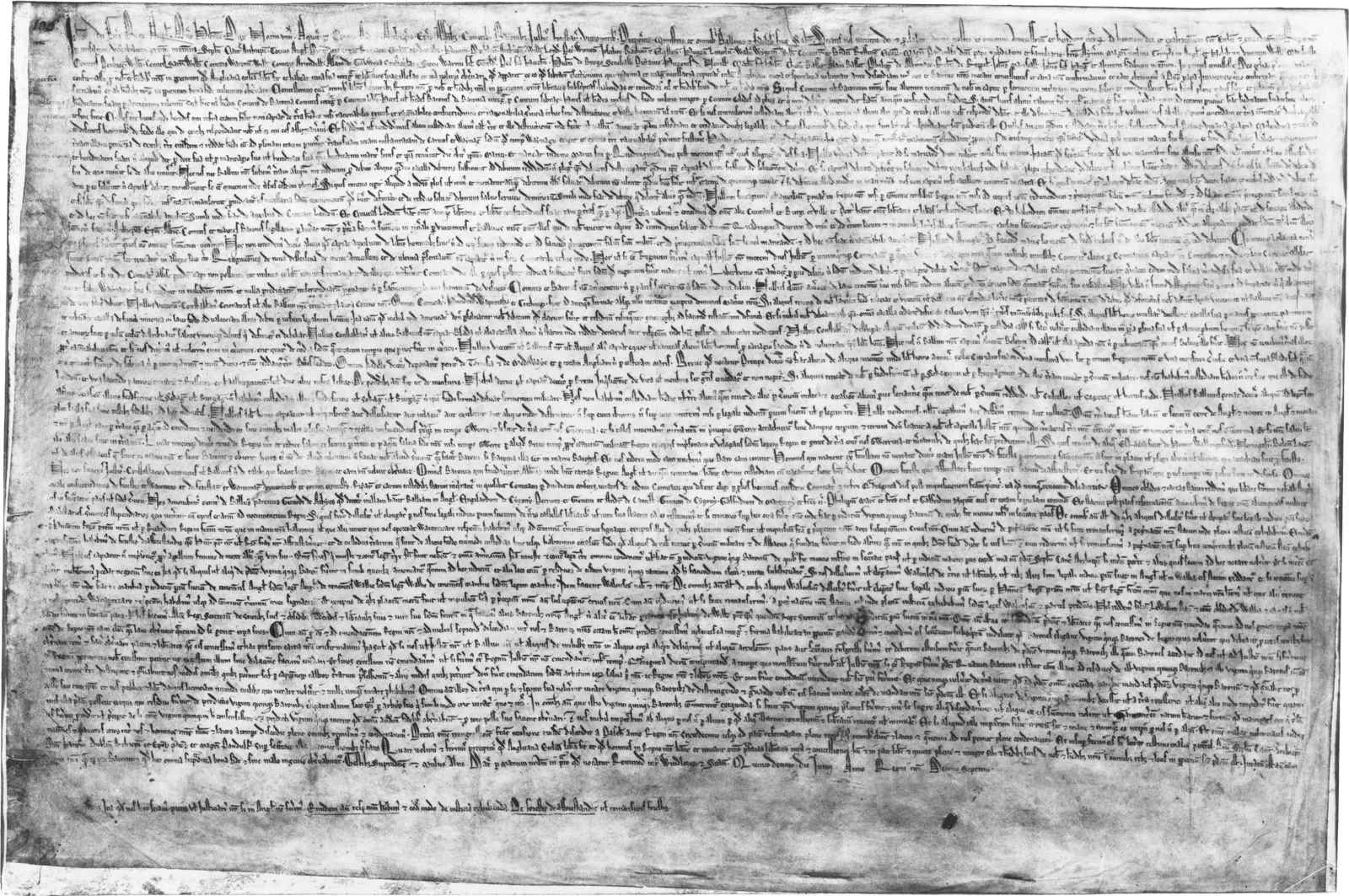
In 1215, King John of England's heavy taxation and arbitrary imprisonment of landowners provoked a united rebellion from the nobles. Twenty-five rebel barons surrounded Runnymede with spears, forcing the issuance of the Magna Carta—a document that constrained royal power and emphasized "judgment by law" (Encyclopedia Britannica). It was not perfect, nor truly democratic, but it established for the first time that even the king must bow before written rules. This historical moment moved the law from beneath royal authority to the negotiation table.
Netherlands: The Decentralized Experiment of the United Provinces
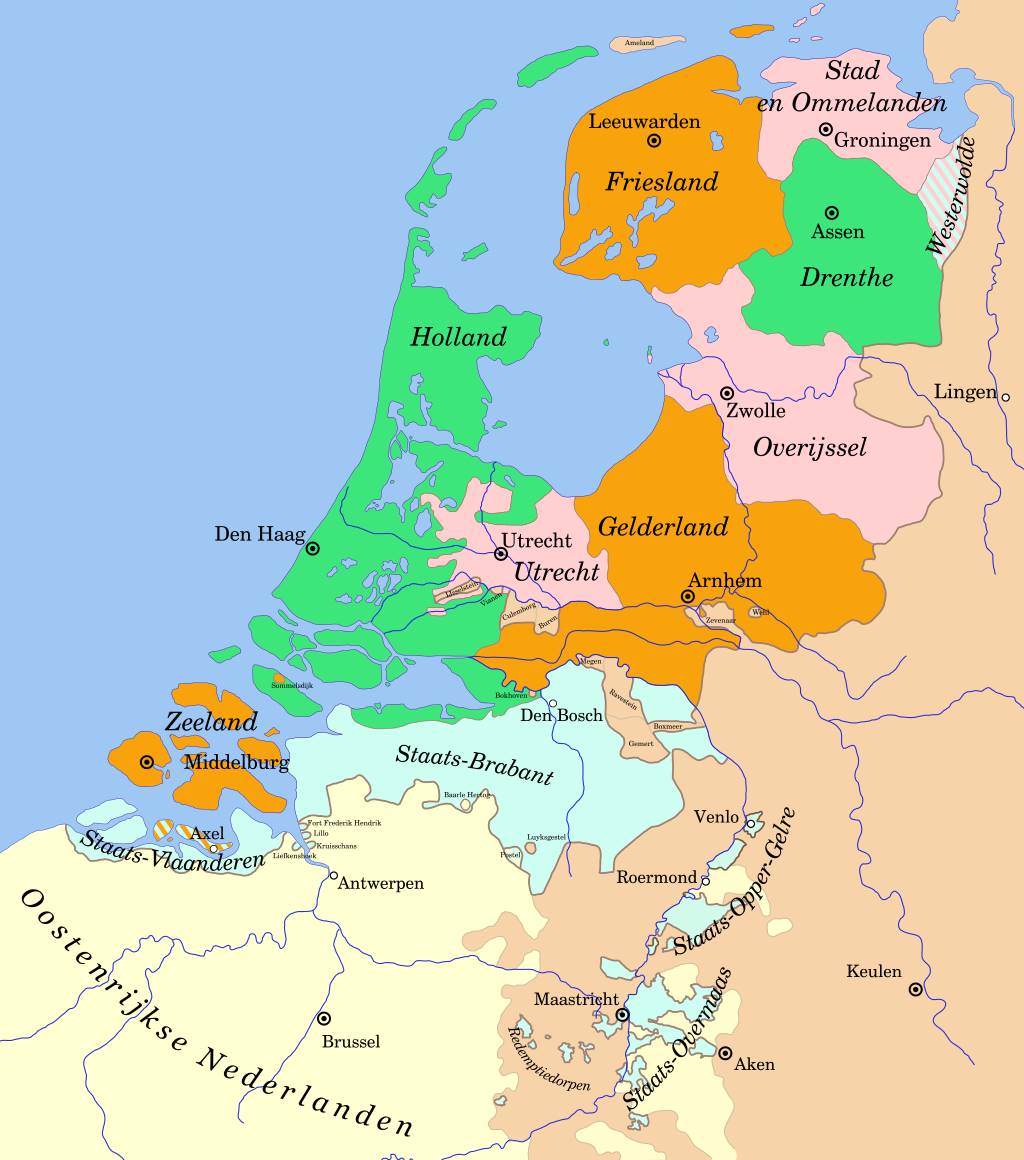
In 1581, the seven provinces of the Netherlands united to break away from Habsburg rule, establishing one of the world's earliest republics. Unlike the centralized power of the English king, it entrusted diplomacy and defense to a council, with each province enjoying high autonomy over taxation, the church, and personal freedoms. Under this system, Amsterdam merchants could freely print newspapers, open shops, and raise funds, leading to Dutch merchant ships accounting for one-third of global trade in the 17th century, while financial markets and news systems began to sprout in a multi-centered competition (gale.com).
England (Again): The Parliamentary Chain Binding Royal Power
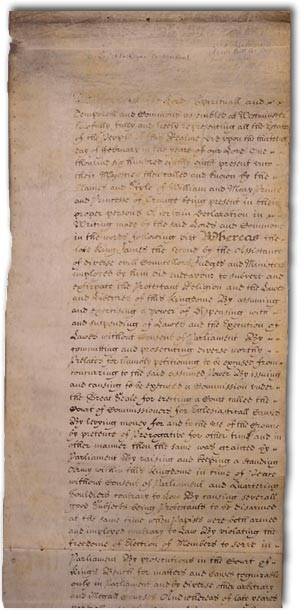
After the "Glorious Revolution" of 1688, William III ascended the throne but had to report to Parliament annually to secure military funding. Thus, the 1689 Bill of Rights established that "no taxation without the consent of Parliament, and no standing army" (Wikipedia). From then on, fiscal sovereignty was returned to the people, with Parliament approving budgets and laws through deliberation, marking the first time royal power was bound by a "budgetary shackle."
These historical fragments, seemingly independent, resonate with a common melody:
When power is fragmented, rules have the opportunity to rise; when the center is weakened, law and reason have space to breathe.
Democracy and the rule of law have never been gifts from the upper echelons but are byproducts of countless "power nodes" mutually restraining and repeatedly negotiating with each other. Just like the balance of a forest, it does not rely on the mercy of beasts but on the mutual checks among species.
Because of this, as the fragmentation of power gradually becomes a reality, human society can move from "the one with the biggest fist decides" to "the one who speaks rightly can be heard."
What follows is an explosion of human creativity: systems bring safety expectations, safety nurtures trust, and trust unleashes imagination—thus quietly igniting the technological revolution, with democracy and the rule of law rising in a double helix of civilization.
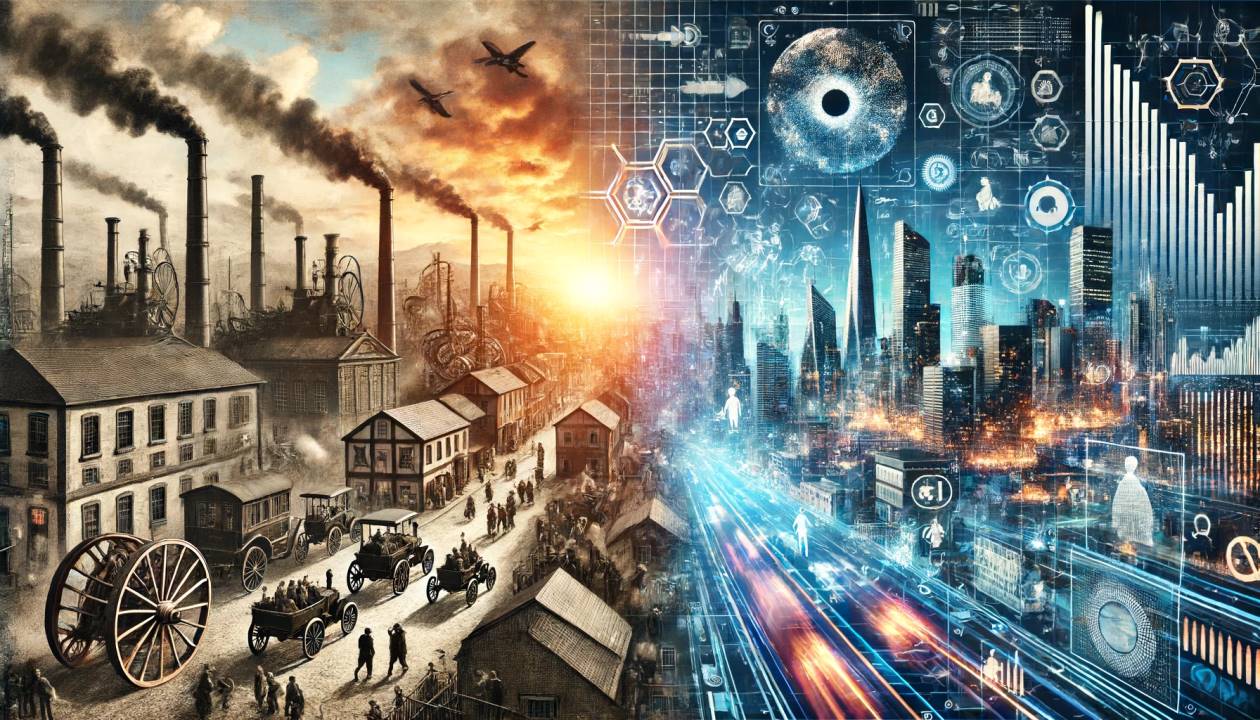
3. The "Bilateral Pursuit" of Science, Technology, and Democracy Rule of Law
When Gutenberg's printing press roared to life in Mainz in 1450, the smell of ink and the sound of lead type quietly changed the distribution of power. For the next six hundred years, technology and systems intertwined like a double helix of DNA: whenever one side mutated, the other followed closely in co-evolution. Humanity thus gradually moved from "gunpoint rules" to "written rules."
3.1 Technology Expands Democracy
After humanity emerged from primitive tribes, "concentration of power" was once seen as synonymous with efficiency. Technology was often first used by the power center. However, as the barriers to information dissemination, communication, and public expression continued to lower, technology ceased to be merely a tool serving the "golden scepter" and began to quietly "expand" the rights boundaries of ordinary people.
3.1.1 The Printing Press: Transforming "Literacy Rights" from Rationing to Affordable Goods
Just twenty years after the Gutenberg Bible was published, the price of the Bible in the German region plummeted from 50 gold coins for a hand-copied parchment to less than 3 silver coins, collapsing costs by over 90% (Wikipedia).
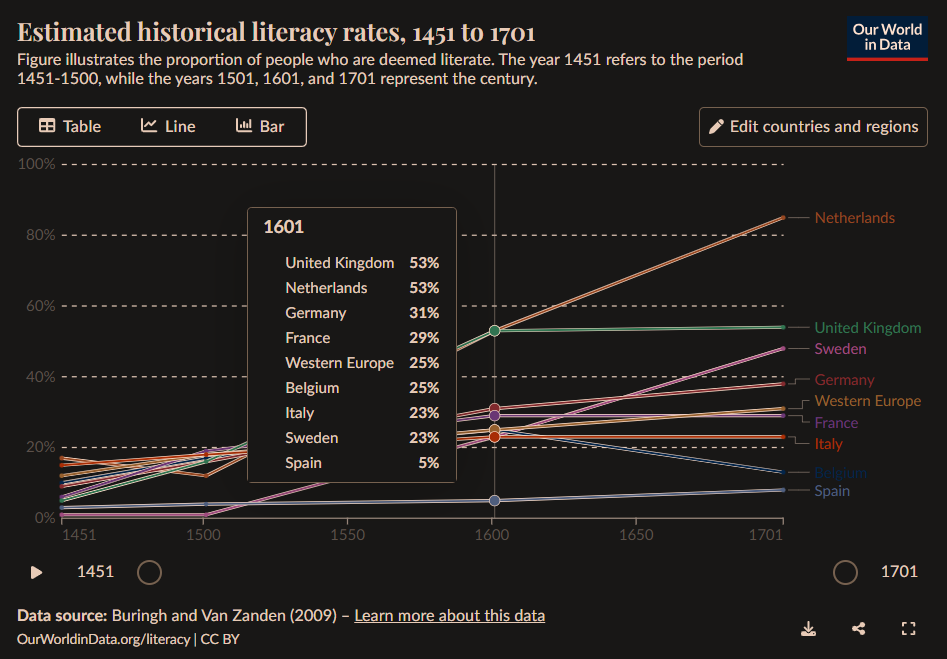
The literacy threshold subsequently lowered: France's literacy rate rose from 6% in 1450 to 29% by 1600 (Our World in Data).
When ordinary craftsmen could read books and write petitions, Luther's "Ninety-Five Theses" could spread along the Rhine River in just six months, forcing the imperial parliament to publicly discuss "freedom of faith" for the first time. Technology transformed "priestly dictation" into "everyone reading books," pulling papal authority into the public square for debate.
3.1.2 The Telegraph: Compressing "Next-Day Supervision" into "Same-Day Supervision"
In 1844, Morse code connected Washington and Baltimore, and within ten years, the United States had laid over 50,000 kilometers of telegraph lines. The New York "Herald" was the first to use the telegraph to send congressional debate transcripts, which could be printed on the streets that very night.
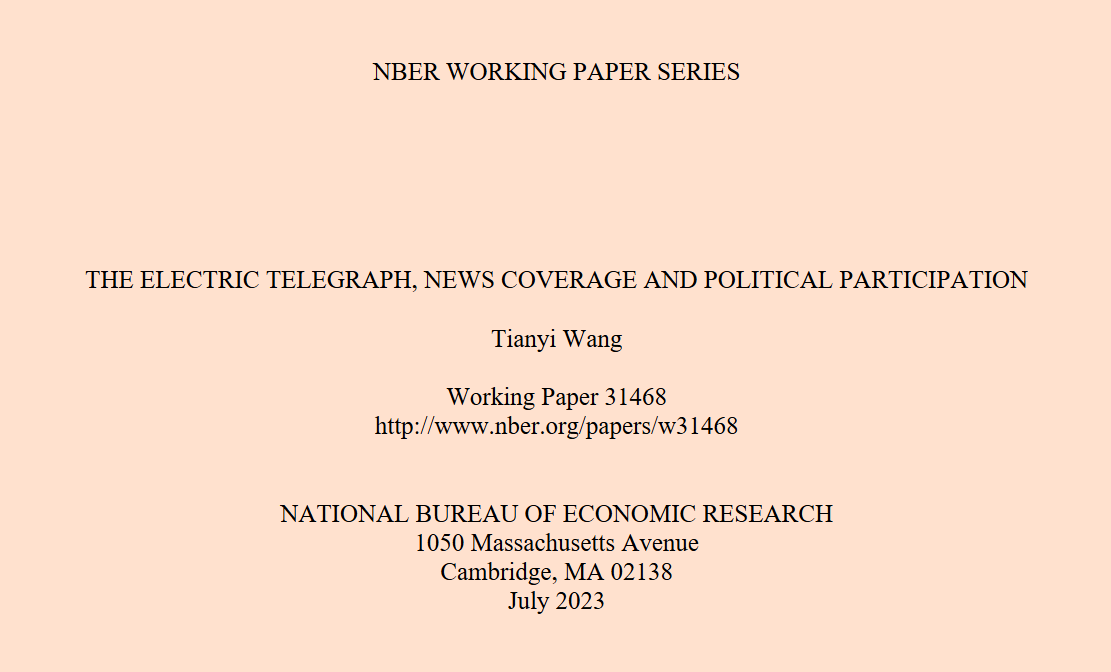
Research shows that between 1870 and 1890, for every 10% increase in telegraph coverage, the absentee voting rate of state legislators decreased by an average of 2.3% (NBER). This was the first time technology connected "people's representatives" with "the people's eyes" in real-time, allowing voter oversight to no longer be delayed for weeks but to appear in the next day's news, enabling immediate accountability.
3.1.3 The Internet and Social Platforms: Upgrading the "Magnifying Glass" to a "Microscope"
In 1997, the global average internet usage time was only 30 minutes per week; by 2024, this number had risen to 6 hours and 40 minutes per day, with the total number of internet users surpassing 5.35 billion, accounting for nearly 70% of the global population (DataReportal). The UK's e-Petition platform, launched just over a decade ago, has already facilitated 62 issues entering Parliament for mandatory debate (publications.parliament.uk).
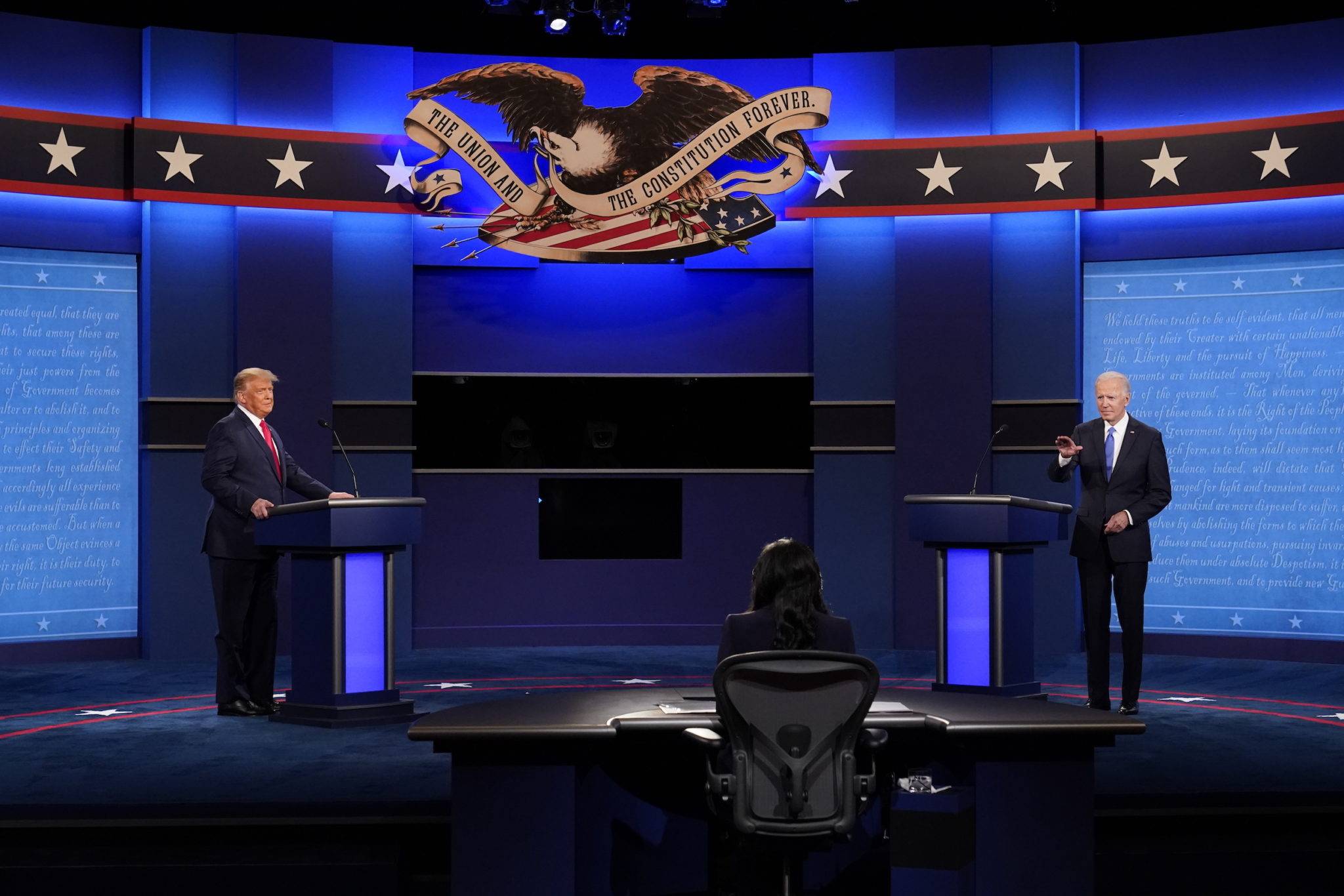
During the 2020 U.S. presidential debates, fact-checking organizations published 187 real-time corrections within 90 minutes, with an average delay of only 42 seconds (Poynter). The transparency of technology leaped from "newspaper magnifying glass" to "second-level microscope," reducing the half-life of public lies to the shortest in history.
In fact, every leap in technology not only changes how we access information but also alters our potential to participate in decision-making—from "being able to listen" to "being able to speak," and from "being able to speak" to "being able to change."
3.2 Good Democracy Nurtures Good Rule of Law
Technology can amplify voices, but only democracy can channel them into the rule-making process, while the rule of law is responsible for solidifying these voices into "institutional codes" that everyone can reference, appeal, and enforce.
Only when "who can write the rules" and "the rules actually work" are both established can technology avoid becoming a new monopolistic tool. This is not abstract reasoning; three sets of historical coordinates are sufficient to illustrate:
A. The 1689 Bill of Rights: First Representation, Then Rule of Law
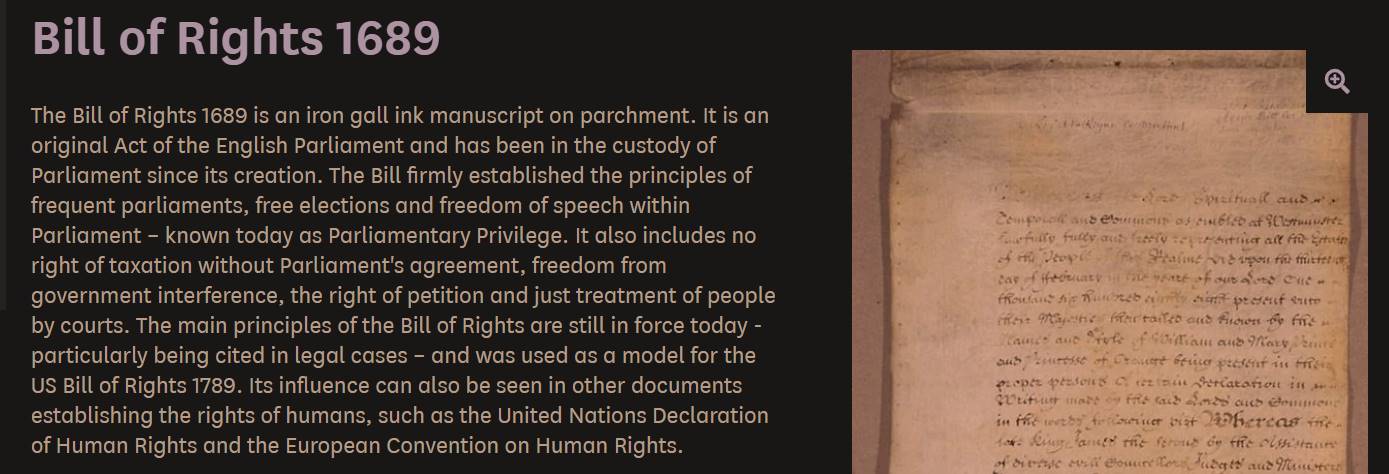
After the Glorious Revolution overthrew James II, William III could only levy taxes and maintain an army with Parliament's approval. This structure was enshrined in the Bill of Rights, which explicitly stated core principles such as "freedom of speech" and "permanent Parliament" (parliament.uk). First came "representative authorization," then "limited royal power." Without the former, the bill is just paper; without the latter, representation is mere talk.
B. Data Resonance: Democracy Index ≈ Rule of Law Index
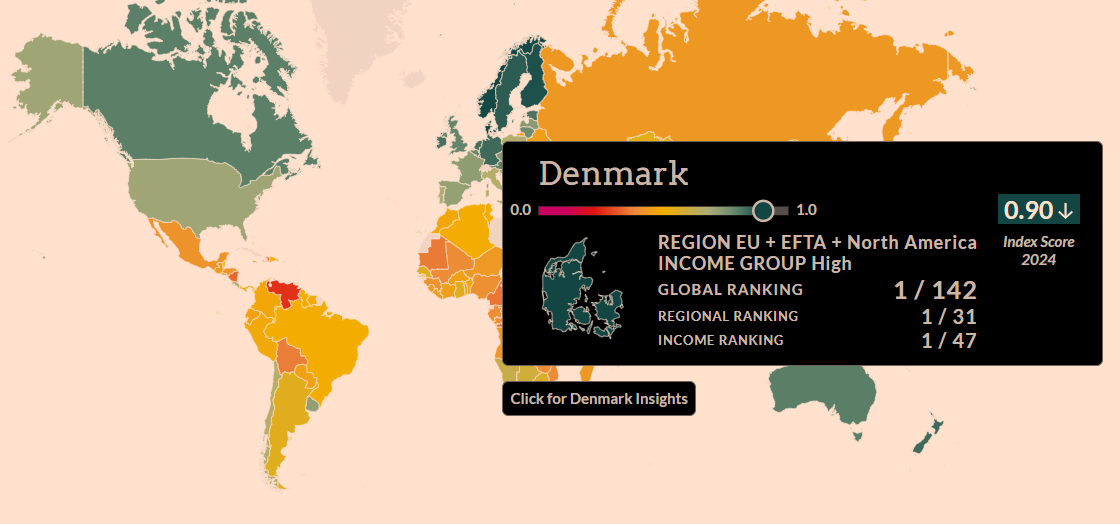
The World Justice Project's 2024 "Rule of Law Index" ranks Denmark, Norway, and Finland in the top three (World Justice Project).
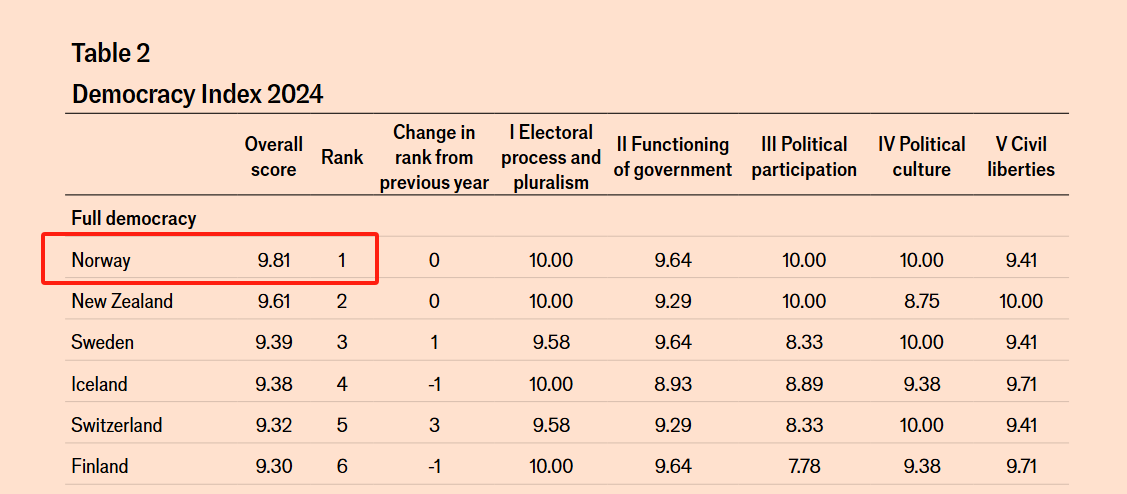
The Economist's Democracy Index also lists these three countries among the top five globally (Denmark 9.80, Norway 9.81, Finland 9.58) (d1qqtien6gys07.cloudfront.net).
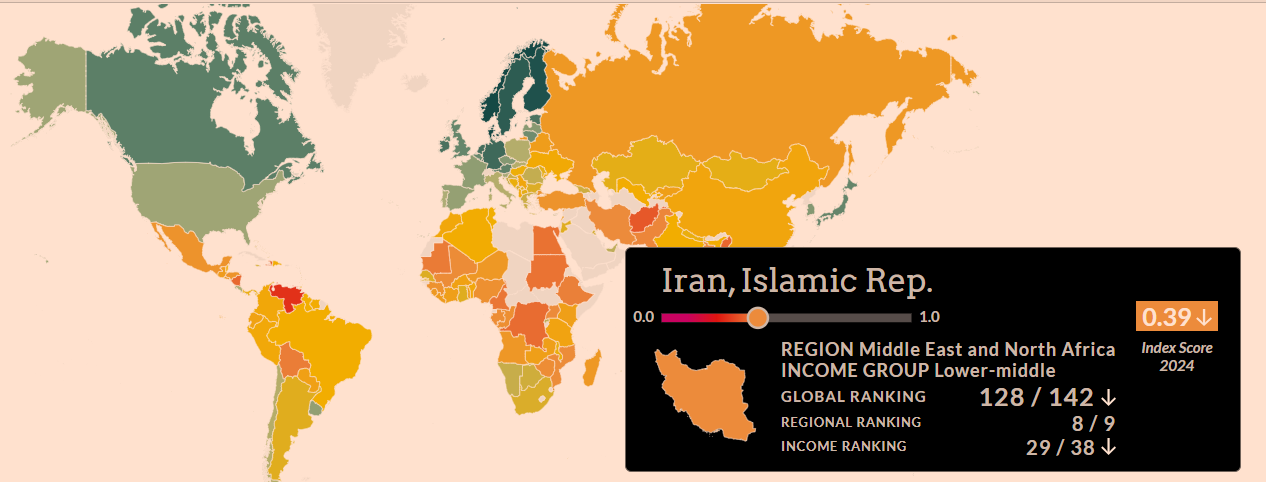
In contrast, Venezuela, Cambodia, and Afghanistan, which rank at the bottom, all have democracy scores below 3.
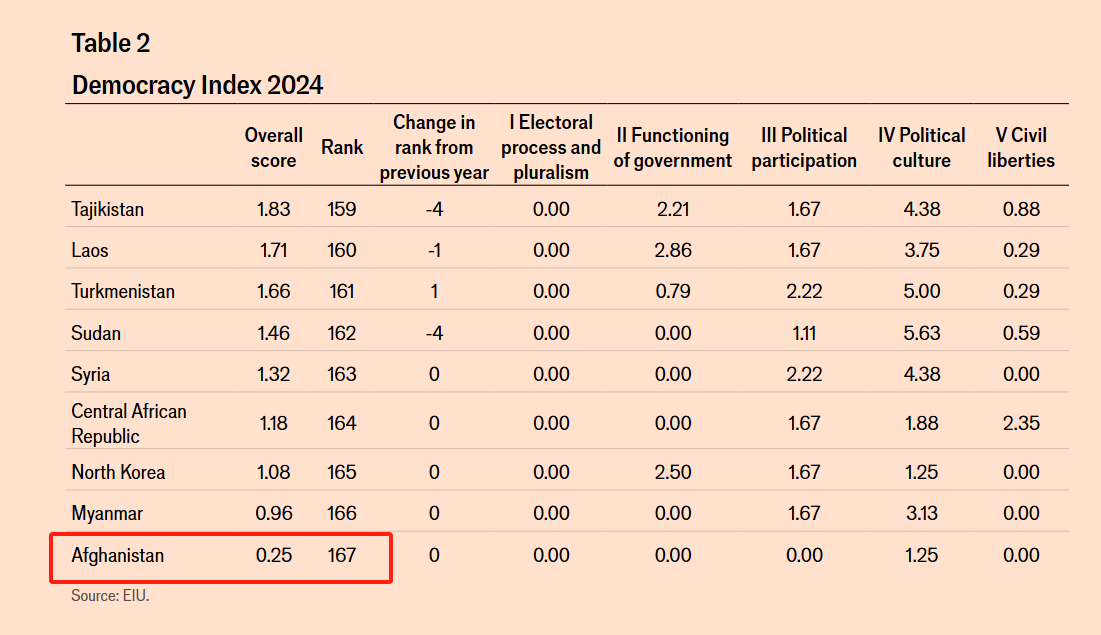
The correlation coefficient between the two indices across 142 countries is as high as 0.86, indicating nearly synchronous fluctuations. It is evident that democracy is the source of institutions, while the rule of law is their form.
C. "Moving the Big Man": The Blade of Rule of Law Must Be Inserted into the Sheath of Democracy
After Jair Bolsonaro's electoral defeat in 2022, he was investigated by the Supreme Electoral Court and federal police on multiple fronts, including alleged coup plotting, tampering with vaccination records, and inciting violent protests. Between 2023 and 2024, he has appeared in court multiple times, and the loss of political power has allowed judicial processes to advance comprehensively.
Benjamin Netanyahu faced three corruption charges (bribery, fraud, breach of trust) in an Israeli district court in 2022. The case is still ongoing, and he is set to face cross-examination for the first time in December 2024. Elections continue as usual, with the opposition holding seats, allowing the trial to maintain its independence.
Time magazine analyzed 15 similar cases globally and found a pattern: only in political systems where votes genuinely flow and opposition parties are active can the judiciary dare to "move the big man." Conversely, in systems characterized by "strongmen and rubber-stamp parliaments"—such as Venezuela and Myanmar—so-called "judicial accountability" often proves to be a mere illusion.
The essence of the printing press, telegraph, and internet lies in handing the microphone to more people. But that is not enough—only when these voices can enter the legislative process and be grounded in the courts can technology avoid being misused by power. Whether the technological dividend will be devoured by the surveillance machine ultimately depends on whether democratic authorization is genuine and whether the rule of law constraints are robust.
3.3 The Rule of Law Nurtures Technological Innovation
We should not overlook the feedback effect of this chain: the rule of law is not just a cage that constrains technology; it is also an accelerator that drives innovation.
In 1889, the U.S. Supreme Court established the "obviousness" principle in the "Edison Light Bulb Case," opening the patent floodgates for subsequent cross-licensing and directly accelerating the wave of electrification;
In 1958, the National Defense Education Act allocated funds to train 650,000 engineers, with one $10 million grant leading to the creation of ARPANET—the precursor to the internet;
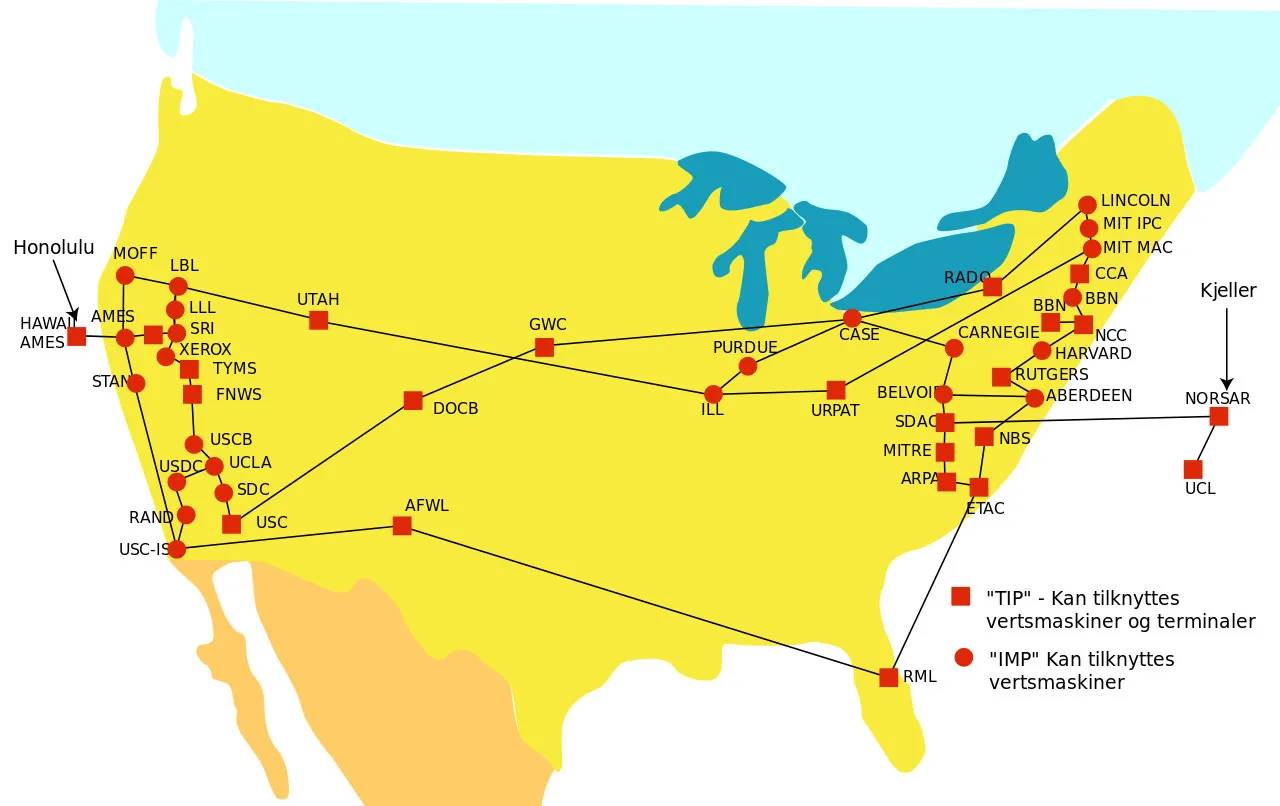
In 2016, the General Data Protection Regulation (GDPR) of the European Union enshrined the "right to data portability" in Article 20, giving rise to a wave of innovations and startups, including encryption protocols and zero-knowledge proofs.
As long as the rule of law can provide clear property rights, transparent budgets, and reliable mechanisms for litigation, innovators are willing to bet in the sunlight; conversely, ambiguity and disorder will only allow technology to become a breeding ground for monopolies and crime.
3.4 Summary
From the printing press to blockchain, each technological leap has weakened the "wall costs" of information and capital, forcing power to decentralize and share benefits. Each institutional innovation—from paper petitions to on-chain voting—has in turn paved the "track of rules" for technological diffusion.
Science, technology, and the rule of law have thus intertwined and co-evolved over centuries. As long as this double helix continues to spin, the golden gun in the hands of the powerful will find it difficult to easily pull the trigger.
However, as we can see, the world does not develop evenly. In some countries, ballots and the rule of law are as dense as starlight; in others, the law of the jungle has never truly left, waiting for a shift in the wind to return.
When the state itself becomes an obstacle to civilization's progress, traditional governance tools have long been inadequate. Economic sanctions and diplomatic isolation may be grand in scale, but they struggle to reach the micro-level of individual destinies.
Yet in this evolutionary relay, a new variable has quietly emerged:
Blockchain—a virtual replica of the "fragmentation of power" in the real world—may be providing a subtle but firm escape route for those trapped under authoritarian rule.
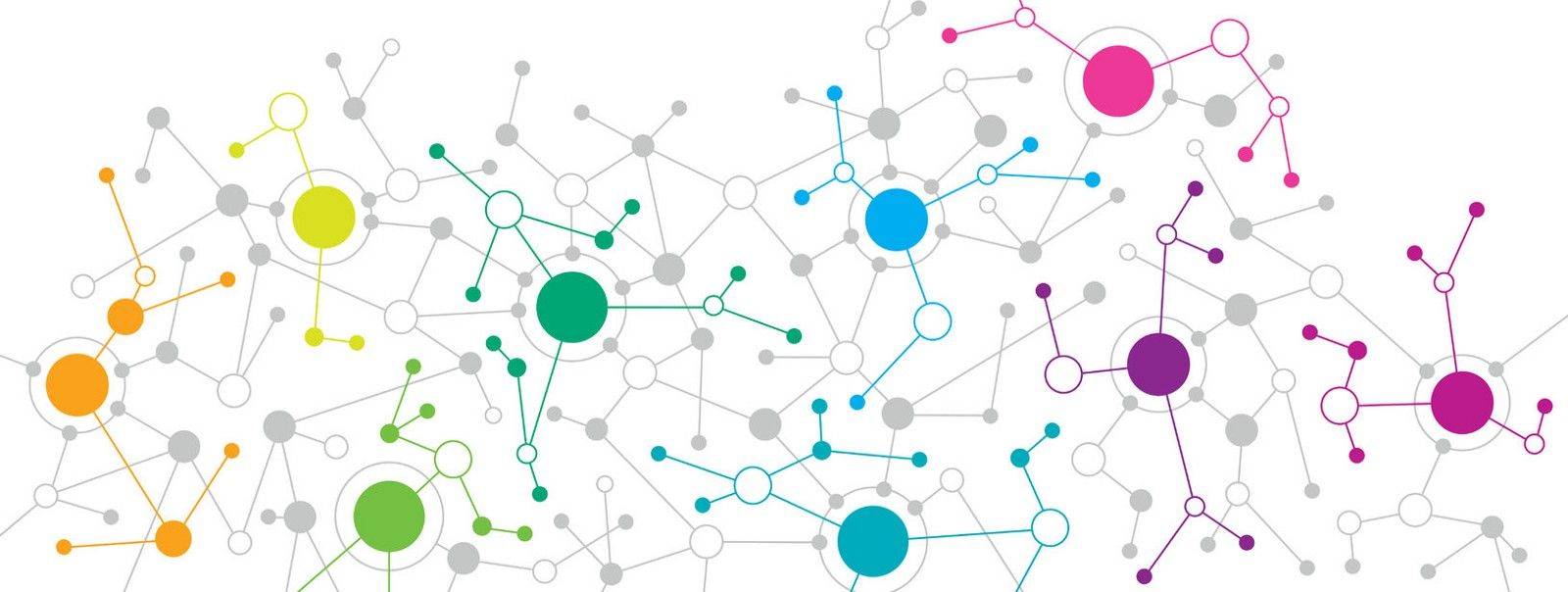
4. Decentralization: A Ray of Hope Under the Shadow of Power
When traditional finance, media, and justice are all firmly grasped by the same iron fist, blockchain acts like a silent undercurrent—narrow on the surface, yet capable of carving out a hidden river for the flow of value between impenetrable walls of power.
However, we must understand that the power of "decentralization of blockchain" stems from the "fragmentation of power."
4.1 From "Fragmentation of Power" to "Decentralization"
When medieval Europe was divided into hundreds of principalities, no single power center could monopolize violence and knowledge for long. It was in these fragmented gaps that the printing press broke through, transforming the clergy's Latin texts into affordable paper and washing away the "moat of knowledge" into a public river. Over the next four hundred years, history stepped onto a ladder verifiable by data:
In 1600, France's literacy rate rose to 29%, tripling from 1470;
Two generations later, the Bill of Rights nailed "no taxation without Parliament" into the king's scepter;
A century later, the British industrial patent system exploded alongside the steam engine, raising its per capita GDP to 2.4 times the continental average (IMF long-term series).
With each piece of "single-point power" dismantled, humanity gains a voucher for technological dividends. Blockchain is attempting to replicate this physical ladder in the virtual world:
No central ledger: The Bitcoin network has over 23,000 full nodes distributed across more than 140 countries. Want to "one-click close the chain"? You would need to simultaneously unplug thousands of data lines worldwide.
Permissionless access: Users can bypass foreign exchange controls in their mobile wallets and transfer all assets across borders with just 24 mnemonic words.
Verifiable consensus: Every transaction is recorded on the chain, preventing embezzlement and allowing global observers to "watch the chain" in real-time.
The fragmentation of power in reality once paved the way for the industrial revolution; the decentralization in the virtual world may be opening a door for future "public chain governance" and "code constitutions."
4.2 Three Real Escape Routes
The following three true stories exemplify how decentralized technology brings a ray of hope to people trapped in the cracks of oppression.
● Venezuela: Using Private Keys Against Hyperinflation
From 2015 to 2020, the purchasing power of the Bolívar evaporated by over 99.9999%. In the worst week, buying a loaf of bread required three large bundles of cash. In this "cash sinkhole," workers in Caracas learned a new move: as soon as they received their salaries, they would immediately open their phones and convert their money into BTC or USDT.
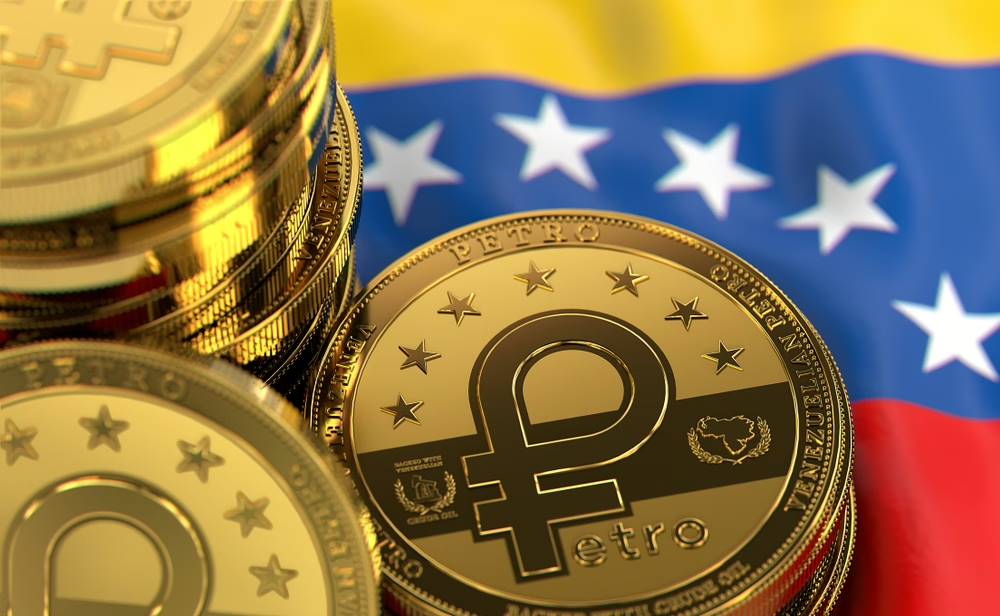
In 2024, NGO statistics showed that local P2P Bitcoin trading volumes continued to rise, with weekly peaks ranking among the top three globally. In a country where even the official exchange rate is not trusted, a string of 24 mnemonic words serves as a "portable bank."
● Nigeria: No Banks, Funds on the Chain
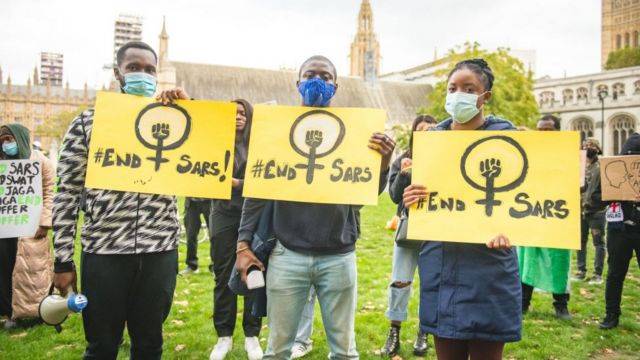
After the #EndSARS anti-police brutality protests erupted in 2020, the government froze the bank accounts of key organizers. Within hours, the Feminist Coalition replaced their fundraising QR codes with Bitcoin addresses. Within five days, they received approximately $51,000 worth of BTC and exchanged it for local currency to purchase medical supplies through P2P over-the-counter trading (The Columnist). While traditional financial channels were forcibly shut down, the pipelines on the chain could not be cut off.
● Belarus: Cryptocurrency Supports the Lifeline of Exiles
The Lukashenko regime controls banks and cuts off charitable accounts, leaving many families of political prisoners without a source of livelihood. The exile organization BYSOL opened BTC and USDT wallets in Lithuania, distributing over 600,000 euros in crypto aid in 2022.
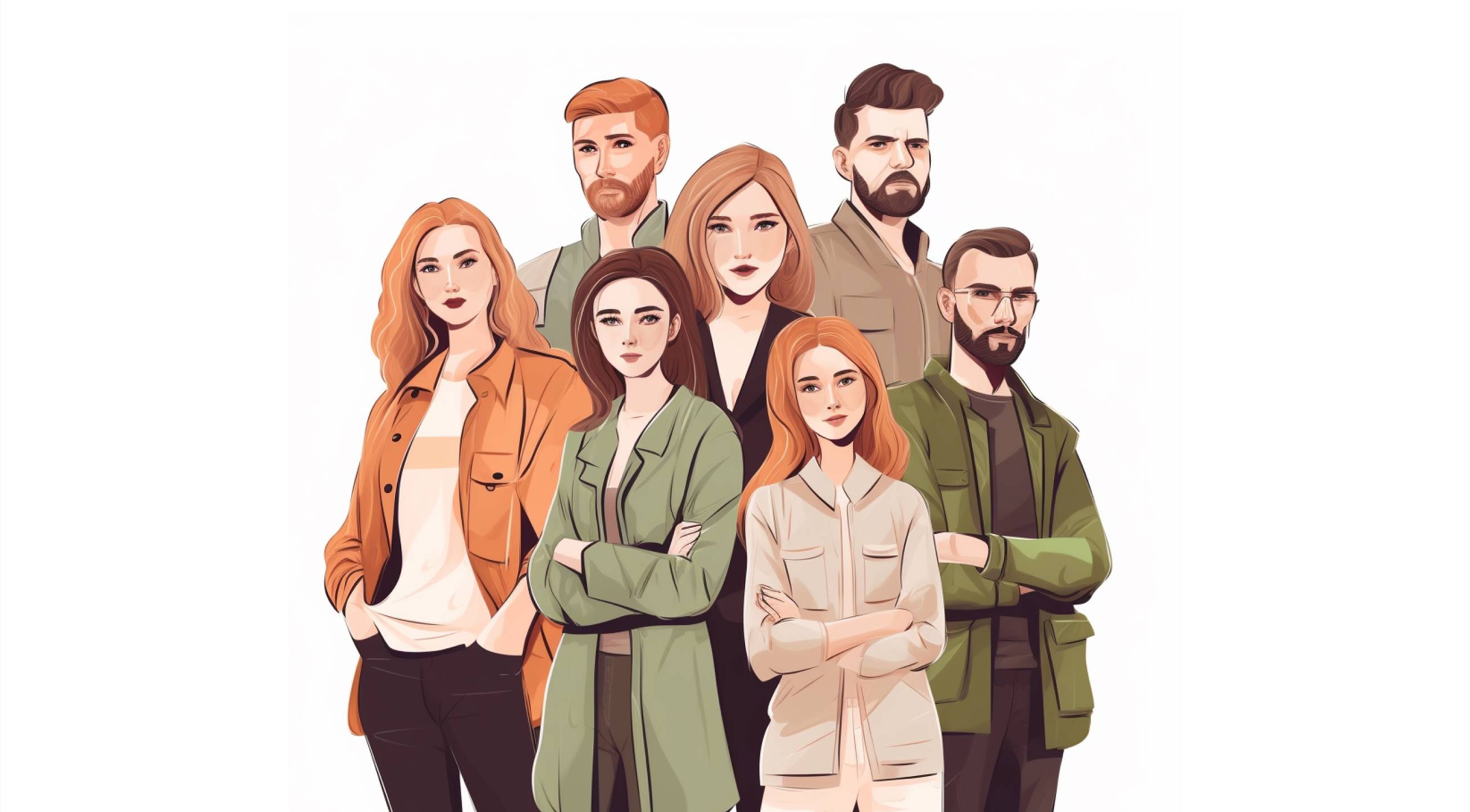
Each transaction arrives on average within 48 hours, and recipients can exchange it for rubles through instant exchange counters (source: bysol.org). The decentralized ledger ensures that donations flow transparently while being nearly impossible to freeze in one go.
These stories are not distant and are by no means isolated cases. They are just the tip of the iceberg—under the shadows of countless authoritarian regimes worldwide, more people are engaging in a struggle against untouchable power through an old phone and a set of mnemonic words. In today's increasingly democratized "on-chain value migration," ordinary users can also leverage similar low-cost strategies to achieve both cognitive and economic gains in their daily practices.
4.3 Summary: The Hidden River May Not Be Omnipotent, But It Is Widening
Blockchain is not a universal key. It is vulnerable to network outages, power failures, and can be used as a tool for scams or speculation. Without legal safeguards, the chain can also become a stage for Ponzi schemes. But this planet has long had more than just ground-based stations—
As of August 2025, SpaceX's Starlink constellation has deployed 8,075 satellites, accounting for 65% of the total number of satellites in orbit worldwide (Space.com).

Even if an iron curtain rises on the ground, there is still a starry sky above.
Just as movable type stuffed truth into backpacks and the telegraph wrote parliaments into morning papers, blockchain is attempting to package finance, contracts, and governance into a string of hashes. It may not bring about a utopia, but it is lowering the success rate of "gunpoint autocracy" to a historic low—
This is the most secretive yet steadfast counterattack against the law of the jungle.
Conclusion
"The Stage" reveals to us a blood-stained platform—where the script is turned by the gun's muzzle, and the actors exit with their lives. It tells us:
As long as power can sing solo, the voices of the many can only fall silent.
The long lens of history tells us:
The reason "polyphony" in reality can resonate is that power is constantly being fragmented, constrained by the rule of law, and pushed by technology.
Now, blockchain is replicating this fragmentation in virtual space, like a silent hidden river, traversing between iron curtains and network outages, carving out escape tunnels for those under oppression.
It is far from perfect, yet it is enough to make the golden gun hesitate for the first time before pulling the trigger—costs and consequences are beginning to emerge as part of the power calculation.
True civilization is never measured by the splendor of stage scenery, but by:
Whether there is still a "Green General" who can command life and death with a single order.
免责声明:本文章仅代表作者个人观点,不代表本平台的立场和观点。本文章仅供信息分享,不构成对任何人的任何投资建议。用户与作者之间的任何争议,与本平台无关。如网页中刊载的文章或图片涉及侵权,请提供相关的权利证明和身份证明发送邮件到support@aicoin.com,本平台相关工作人员将会进行核查。



